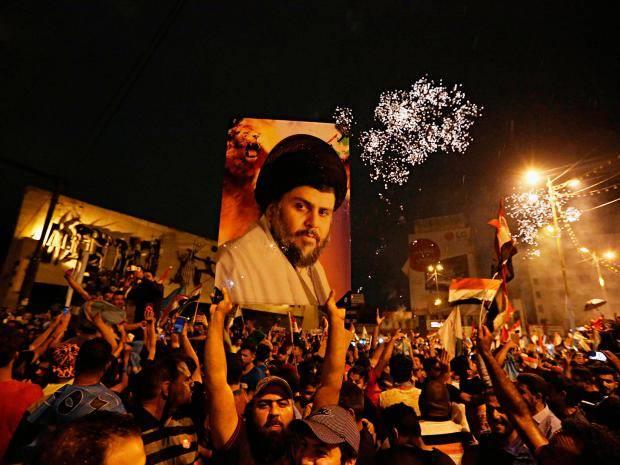BAGHDAD, May 19 (Xinhua) -- The political coalition led by prominent Shiite cleric Moqtada al-Sadr won most seats in Iraq's parliamentary election on May 12, the Iraqi electoral commission said Saturday.
According to final results announced by the Iraqi Independent High Electoral Commission (IHEC), Sadr's al-Sa'iroon Coalition garnered 54 seats in the 329-seat Council of Representatives (parliament), while al-Fath coalition, led by Hadi al-Ameri, came in second with 47 seats.
The al-Nasr Coalition, led by current Prime Minister Haider al-Abadi, came in third with 37 seats, and the State of Law Coalition headed by Vice President and former Prime Minister Nuri al-Maliki garnered 25 seats, according to the electoral commission.
The two major Kurdish parties -- Kurdistan Democratic Party (KDP), headed by Masoud Barzani, and Patriotic Union of Kurdistan (PUK) -- took the lead in the Kurdish region and in the ethnically-mixed province of Kirkuk with 25 seats for the KDP and 18 for the PUK, according to IHEC figures.
The announcement came as an emergency session, called by Parliament Speaker Salim al-Jubouri on Thursday, will be held at 1 p.m. (1000 GMT) on Saturday at the request of some 80 lawmakers to discuss the results of the parliamentary elections.
Many Iraqi parties, especially in the semi-autonomous region of Kurdistan and some disputed areas, have complained about alleged irregularities and forgery in the parliamentary election.
The complaints put the electoral commission under pressure to carry out manual recount of many ballot boxes after it had only collected the electronic count of the votes.
Also on Thursday, the United Nations special envoy to Iraq Jan Kubis issued a statement, calling on the IHEC to carry out an immediate and thorough investigation into all complaints concerning the election.
Earlier, Riyadh al-Badran, head of the electoral commission, told a press conference that "there is no justification for a manual recount yet" despite many accusations of voter fraud.
On May 12, millions of Iraqis went to 8,959 polling centers across the country to vote for their parliamentary representatives in the first general election after Iraq's historic victory over the Islamic State (IS) group last December.
Some 90 political entities and 7,000 candidates were vying for 329 seats in the parliament.
